|
|
|
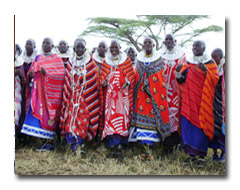 |
|
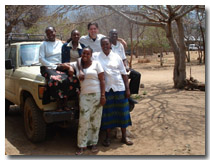 Sauti Moja's primary partner in Tanzania is Sauti Moja - Tanzania in the Longido District of Northern Tanzania. It is an arid region populated predominantly by the pastoral Maasai. Sauti Moja's primary partner in Tanzania is Sauti Moja - Tanzania in the Longido District of Northern Tanzania. It is an arid region populated predominantly by the pastoral Maasai.
Context
We work in Northern Tanzania, specifically in the District of Longido, which stretches from the slopes of Mount Kilimanjaro in the east to Lake Natron in the west and Kenya to the north. It’s a beautiful savannah area comprising many of the stereotypical images of Africa, including the striking, colourfully-dressed Maasai and a diversity of wildlife. Our operations are based in Longido Village, where Sauti Moja's Program Manager is permanently based.
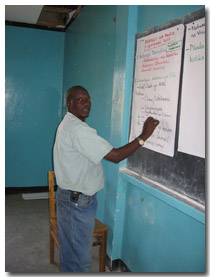 The environment of Longido District varies from arid to semi-arid, with low, seasonal precipitation. However, droughts are increasing in frequency and severity. With only a few exceptions, the environment is not conducive to production of food crops. Pastoralism – a livelihood that almost completely depends on livestock – is the dominant way of life in Longido. The environment of Longido District varies from arid to semi-arid, with low, seasonal precipitation. However, droughts are increasing in frequency and severity. With only a few exceptions, the environment is not conducive to production of food crops. Pastoralism – a livelihood that almost completely depends on livestock – is the dominant way of life in Longido.
Longido District is predominantly populated by the pastoral Maasai, who depend on herding cattle, sheep, and goats. Their lives are semi-nomadic; members of the households (mainly male youth) travel with the livestock throughout much of the year in search of grazing areas and water sources. Mobility and access to vast areas of land are integral to community survival due to the devastating dry periods.
The Maasai are an indigenous group in Tanzania facing immense challenges (See the Highlight.), and are desperately trying to preserve their distinct culture. While cultural distinctions between ethnic groups have largely dissolved throughout other parts of Tanzania, the Maasai have defied this trend. Relatively-speaking, they have resisted the pressures of globalization, Western influences, and accompanying values. Nevertheless, their culture remains dynamic, as they delicately manage preservation of their identity and social change.
The Maasai maintain many different values and customs, which often provoke prejudice from Westerners and the dominant groups in Tanzania. This prejudice characterizes the “development” existing in their communities and the services being provided by state and/or non-government agencies (e.g. hospital, school institutions, etc.). This compounds their vulnerability, exacerbating the challenges they already face.
|
|
|
The pastoral Maasai of Tanzania are an internationally-recognized Indigenous Peoples group. However, many people, including fellow Tanzanians, hold many misconceptions about the Maasai community. Most are ignorant about their livelihood, the environment they live in, and the immense challenges they face. Some of the major challenges are:
- Displacement from their historic grazing areas due to competition with farming, hunting, wildlife initiatives, conservation groups, and foreign investors.
- Escalating droughts, devastated grazing lands, and shrinking water resources due to global warming.
- Poor social, health, and education services stemming from geographic isolation and political discrimination.
- Increasing rates of morbidity and mortality related to HIV/AIDS.
Shrinking livestock herds and increasing poverty as a result of the factors above. |
| |
|
|
Partners
Sauti Moja primarily collaborates with Sauti Moja - Tanzania to implement its programs in Tanzania.
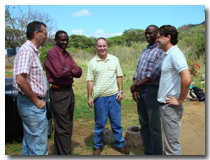 Sauti Moja - Tanzania is a registered NGO based in Longido District. While it was founded by a group of local Maasai in 2010, the current directors and project coordinators have been working alongside and managing Sauti Moja’s Longido programs since 2006. Sauti Moja - Tanzania is a registered NGO based in Longido District. While it was founded by a group of local Maasai in 2010, the current directors and project coordinators have been working alongside and managing Sauti Moja’s Longido programs since 2006.
Sauti Moja - Tanzania represents a genuine community-founded and led agency. Current programs cover sexual and reproductive health education, support to schoolgirls who become pregnant, community health (HIV/AIDS prevention and care), and early childhood development. Their goal is establishment of high-quality programs that are exemplary to and replicable by local agencies. Furthermore, Sauti Moja - Tanzania is involved with actively building relationships with several national and international partners, as well as hosting annual interns from renowned international universities.
Sauti Moja takes great pride in being a part of Sauti Moja- Tanzania’s development and growth. Our successful partnership is an example of Sauti Moja’s commitment to not only support local community programs but, concurrently, to build local civil society. We believe that an important part of development should be building the capacity of local organizations - our particular emphasis being indigenous community-based organizations.
Did you know?
Corey Wright, Sauti Moja Canada’s co-founder and Program Manager, conducted his Master’s research in Longido in 2003. The connections he made and close relationships he built there provided Sauti Moja Canada with a strong foundation to start from, and was the impetus to collaboration with LOOCIP in implementing our programs in Tanzania.
|
|

- Join the LECHE Project which is affordable, supports healthy development of Maasai preschoolers, and helps educate your children.
- 1000 Widows Initiative – We’ve helped 161 vulnerable women become self-sufficient, so now we are targeting another 839 over the next three years! More
- Sponsors for child mothers are desperately needed! More
- Read about Sauti Moja’s role in famine recovery here.
- Read about Sauti Moja’s response to global warming here.
|
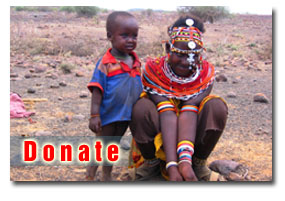 |
|
|
|